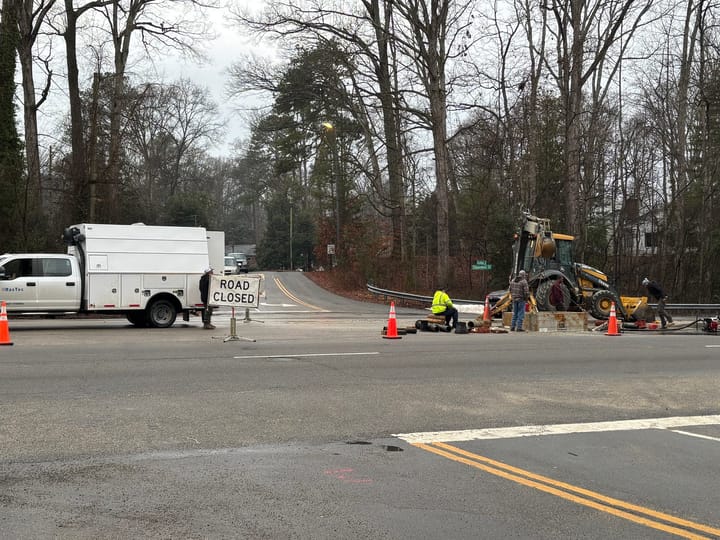
Avula hopes Democratic wins will bring action on gun violence, housing affordability; RPS lays out its priorities
After Democratic victories in Virginia’s elections, Richmond Mayor Danny Avula said he’s “excited to see unified leadership” in state government and hopes it could mean progress on some high-priority issues for the city.
Access to guns has “really been a challenge” for Richmond, Avula said, but gun-control legislation has been largely at a standstill in recent years.
“I'm looking forward to some new legislation in that arena,” Avula said when asked about the election results.
Housing has been another top priority for Richmond, the mayor said.
“To hear the governor-elect talk very specifically about her prioritization of housing, her understanding that what we need to do is produce more housing… will yield really great partnerships for the city of Richmond with the state,” Avula said.
Democrats swept the statewide elections this year, with Gov.-elect Abigail Spanberger winning a 15-point victory over outgoing Republican Lt. Gov. Winsome Earle-Sears. Democrats also greatly expanded their majority in the House of Delegates, winning 64 seats in the 100-member chamber.
With the Senate also expected to remain under Democratic control after a special election in the Richmond area in the coming weeks, Spanberger — a former congresswoman who got her political start in the Richmond suburbs — will have broad leeway to enact her policy agenda.
Gun control
As part of her campaign platform, Spanberger said she supports efforts to ban assault-style weapons and high-capacity magazines, a longstanding Democratic priority that the party failed to agree on the last time it had full control in Virginia. Spanberger also said she’d work to strengthen Virginia’s laws on safe gun storage and keeping firearms away from people at risk of misusing them.
Richmond Police Chief Rick Edwards has pushed for state legislation that could penalize gun owners $500 for leaving firearms unsecured and visible in a vehicle. Edwards has pitched the idea as a way to crack down on gun thefts from cars, a particularly frequent occurrence in Richmond’s Shockoe Bottom. Republican Gov. Glenn Youngkin has vetoed the measure.
Housing
Spanberger also campaigned on helping localities build more housing to address affordability issues.
Richmond is putting forth several specific ideas on the housing affordability front in its legislative wish list for 2026.
The latest draft of the city’s legislative agenda includes support for a statewide anti-rent gouging law that would give Richmond more power to “limit abusive rent increases.”
The city is also continuing to support the idea of a Long-term Owner Occupancy Program, a tax relief initiative used elsewhere to shield longtime homeowners from rising tax bills as their property value increases.
The city is also formally asking for the ability to adopt inclusionary zoning, which would give the city more power to require builders to include lower-income housing units in development projects.
The City Council has not yet formally approved the 2026 legislative agenda, but has discussed early versions at several recent meetings.
Inclusionary zoning was added to the city’s legislative agenda late after City Councilor Kenya Gibson (3rd District) said she wanted it to be listed as one of Richmond’s top priorities.
Changing Council’s wish-list process
The Council also discussed changing the process it uses to come up with its state-level policy agenda. Gibson suggested more of the work be done in public instead of through backchannel discussions to make it clearer to Richmonders who is proposing what.
“Since we haven’t had public discussions and much of the process has been through one-on-one conversations… it’s unclear whether or not these items truly do reflect the interests of the majority,” Gibson said at a Nov. 3 meeting.
At the same meeting, Councilor Stephanie Lynch (5th District) floated the idea of removing a self-imposed cap that forces Richmond to limit itself to five top priorities in its yearly legislative agenda.
“I think we’ve confused the public greatly,” Lynch said. “I think we’ve also potentially confused the legislators thinking that just because it’s not on the top billing page that it’s not Richmond-supported legislation.”
The Council seemed to agree to rethink the process for future years, without making major revisions to its draft agenda for 2026 apart from adding explicit support for inclusionary zoning.
Retail marijuana sales
The city is still supporting legalization of recreational cannabis sales, a policy blocked by Youngkin that could potentially impact the proliferation of vape shops in Richmond. The police chief has said many of those stores are illegally selling marijuana.
Spanberger has said she supports finding a path to legalized retail marijuana sales in Virginia.
Water
One of the biggest-ticket items on Richmond’s wishlist to the state is Avula’s request for $80 million in state funds to help shore up the city’s water system to avoid more outages like the ones that occurred early this year.
It’s not clear if Youngkin intends to include that funding in his final budget proposal before he leaves office. Any state funding for water infrastructure could help city officials reduce future increases to the monthly utility bills Richmonders pay.
Education
Richmond Public Schools has also outlined three major division-wide needs that it plans to advocate for in the upcoming General Assembly.
The division would like the General Assembly to renew the state's Commission on School Construction and Modernization for another five years, as it will expire next year. The commission was created in 2020 to assess school facility needs and recommend funding solutions.
"It is through that commission that the school division has received tens of millions of dollars in state support through the school construction assistance program, which was created out of one of their recommendations," said Matthew Stanley, the division's director of advocacy and outreach.
In 2022, the state provided one-time grants to school divisions as a result of a recommendation from the commission, totaling roughly $500 million.
The division also wants to ask that the General Assembly approve legislation that allows localities to hold a referendum for taxpayers to decide whether to fund school construction through a 1% local sales tax. Gov. Glenn Youngkin has vetoed the measure twice. If it does pass, it would be up to City Council to put the referendum on the ballot.
In an attempt to reduce the city's burden, RPS is also going to advocate for the reforming of the Local Composite Index, a formula that indicates how much money a locality can pay for its schools. School administrators have said that Richmond's LCI overstates the city's ability to pay for schools, resulting in less state support. That assertion was backed up by a JLARC study.
In addition to those priorities, the division will advocate for the expansion and strengthening of mental health supports for students.
"We continue to hear from our students and our families that our kids are struggling and we want to make sure that we're doing the best job that we can by supporting them," Stanley said.
RPS will ask the General Assembly to increase the ratio of students to specialized support staff – like school nurses, counselors, social workers and psychologists – to four support staff per 1,000 students, up from the current three.
The 2026 General Assembly session begins Jan. 14. Spanberger will be inaugurated as governor a few days later on Jan. 17.
Contact Reporter Graham Moomaw at gmoomaw@richmonder.org. Contact Reporter Victoria A. Ifatusin at vifatusin@richmonder.org.






